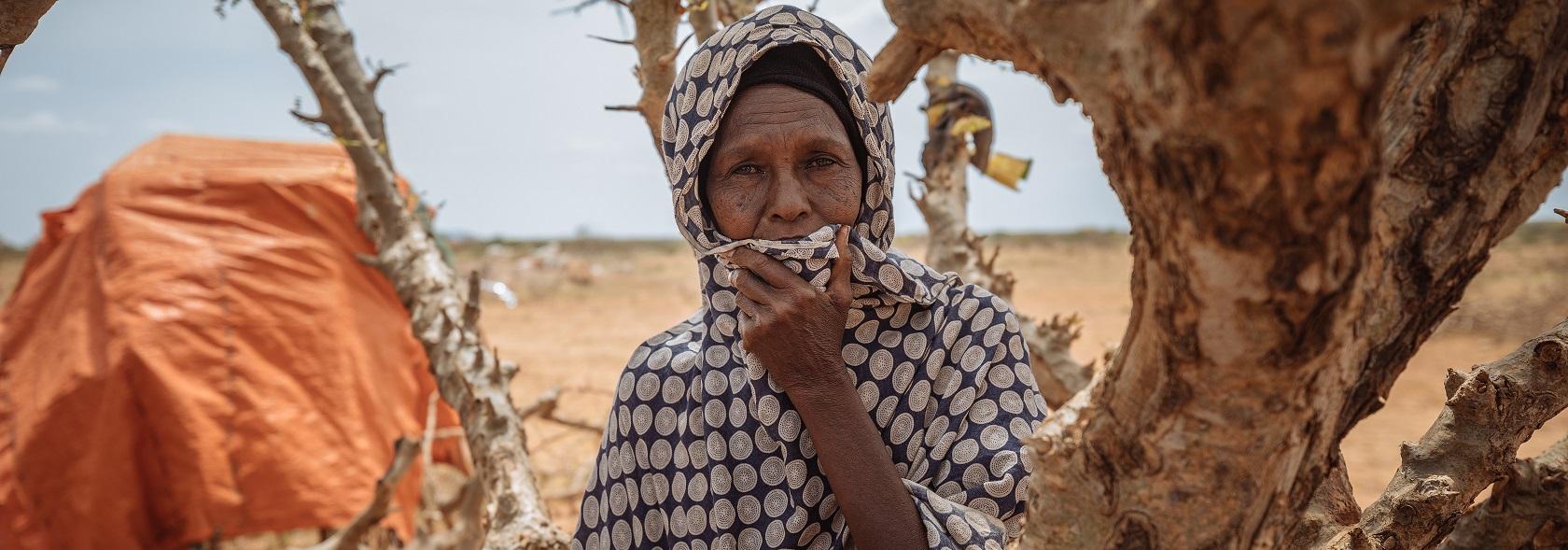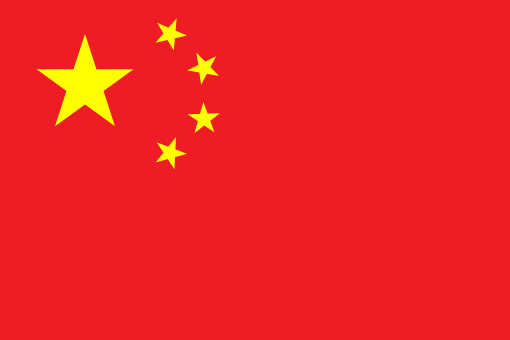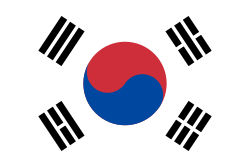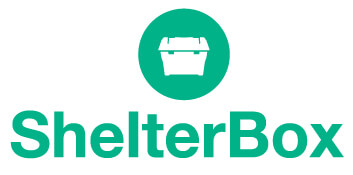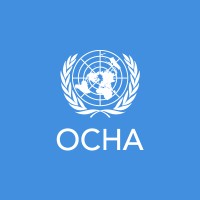IOM Vision
IOM Ethiopia plans to provide timely and tailored humanitarian assistance and resilience programming for crisis-affected populations in Ethiopia, aiming towards durable and sustainable solutions.
Objective
Saving lives and protecting people on the move
Target beneficiaries are displacement affected communities. Beneficiary communities participate in this effort from start to finish - from local women's committees supporting the design and management of projects, to daily worker programs for the implementation of projects.
To provide the Government of Ethiopia and the humanitarian community with the most useful evidence base possible for planning, advocacy, and response, IOM proposes a comprehensive data collection strategy that will apply a holistic view on the different trends and needs of mobile populations in Ethiopia.
The approach will employ six data collection methods in order to provide one comprehensive analysis. In-depth quarterly analytical reporting – triangulating findings of the complementary tools – will be paired with more frequent mobility briefings to provide real-time insight throughout.
Activities will include:
- Site assessments: Multi-sector needs data of locations hosting 20 or more IDP households nationwide.
- Village assessments: Mapping of infrastructure and services to assess the socio-economic status of return communities and their absorption capacity. Villages hosting 5 or more returning IDP households will be assessed (although data on IDPs, returned migrants and host community members in these locations will also be captured).
- Event tracking: Weekly tracking of population movements nationwide, triggering alerts for further assessment.
- Flow monitoring: Regular and irregular movements data (including human trafficking) from 10-15 strategic transit points nationwide. This can be used along with data collected from other countries for analyses of regional routes.
- Thematic analyses: Ad hoc thematic papers produced on critical mobility events and locations, triggered by event tracking alerts.
IOM’s 2020 Shelter and Non-Food Items (S-NFI) program will pursue interventions supporting the emergency-recovery nexus.
Emergency response interventions will ensure critical steps are taken to promote social cohesion between communities (such as institutional reconstruction and rehabilitation), while recovery programs will pursue participatory shelter repairs and rehabilitation, including addressing housing, land and property (HLP) issues. Beneficiaries will be provided with regular trainings to ensure effective participatory action.
Activities include the provision of life-saving emergency shelter (ES) and NFI packages, along with basic shelter repair assistance to displaced households, with the aim of improving living conditions of internally displaced persons (IDPs) and meeting basic humanitarian needs in a timely manner.
Where possible, IOM will conduct shelter interventions alongside water, sanitation, and hygiene (WASH), site management support (SMS), mental health and psychosocial support (MHPSS) and health sectors to increase the impact of the response.
Assistance modalities of both emergency and recovery phases will be informed through needs-based and market assessments exploring potential cash assistance options (including cash for work, for rent, for NFIs) and the risks and trade-offs compared to in-kind support.
IOM also supports national and international NGOs, through the Rapid Response Fund and other sub-granting mechanisms, to respond quickly to emergencies throughout Ethiopia. IOM supports capacity building through supportive supervision to assure displaced populations have access to emergency shelter and NFI packages in line with S-NFI Cluster standards. IOM procures ES-NFI kits in order to quickly respond with partners while also allowing for cash responses when appropriate based on market assessments.
IOM’s 2020 WASH strategy will focus on the expansion of emergency response capacities to ensure timely and appropriate services across the country while prioritising activities that bridge the humanitarian-development nexus.
IOM will also build from previous lessons learned to further expand cash-based intervention opportunities within the WASH sector.
Activities will include rehabilitation and expansion of water supply systems, construction of communal sanitation facilities (latrines, bathing shelters, handwashing), construction of sanitation facilities in institutions including health posts and schools, hygiene promotion and awareness-raising, ensuring proper training of hygiene promoters at kebele and woreda levels, and provision of basic hygiene kits including menstrual management components.
Through the Rapid Response Fund, IOM supports national and international NGOs to respond quickly to emergencies throughout the country. IOM procures hygiene and dignity kits to assure timely emergency responses. Capacity building through supportive supervision ensures WASH responses, including improving access to safe water, sanitation and hygiene, meet the needs of affected populations and WASH Cluster standards.
IOM applies the global pillars of Camp Management to Site Management Support, by using an area-based approach, whether for camp/site settings or out-of-site contexts, including return locations.
In 2020, Site Management Support (SMS) teams will provide coordination and information management support to enable the provision of assistance and protection to displaced populations and returnees. IOM will continue carrying out maintenance and upgrades in sites hosting IDPs to ensure safer and more dignified living conditions and support the decommissioning and rehabilitation of sites that recently closed. Considering the abrupt nature of some returns, IOM will extend SMS activities to return areas, adopting an area-based approach to support the provision of humanitarian assistance to address most urgent needs, and enable a progressive transition to recovery assistance– mobilising notably its Transition and Recovery (TRD) programme. By doing so, IOM intends to enable returnees to access durable solutions and contribute to overall community resilience.
As part of its SMS response, IOM will also continue supporting community participation and governance, and deliver capacity building activities to strengthen capacities of staff, authorities and other stakeholders involved in responses to displacement in Ethiopia.
SMS Pillars
1. Site/Area Coordination, including Information Management:
- Support to site management/local authorities for coordination of humanitarian response in their area of responsibility (IDP Sites, Kebele, Woreda, etc.);
- Production of information products for coordination and decision making. On this, SMS collaborates with IOM Displacement Tracking Matrix (DTM).
2. Site Planning and Upgrading, Decommissioning:
- Maintenance/improvement of communal structures, small-scale site or local infrastructure, including safety, accessibility, and protection risk audits. On this, SMS works closely with IOM Shelter and other Shelter Cluster partners;
- In out-of-site settings, SMS supports communities to carry out their own small-scale maintenance activities.
3. Community Participation/Self-Governance:
- Establishment of/support to community representative bodies, such as site management committees, Kebele committees (in return/out-of-site locations), with a minimum representation of 35% women, women’s committees and youth committees, to act as a liaison between communities and humanitarian actors/authorities;
- Running of a community feedback mechanisms (CFM), including referral of complaints to relevant actors for follow-up/closure;
- Support to displaced populations to exercise their right to the durable solution of their preference, through participatory consultation, information dissemination and advocacy. On this, SMS collaborates with IOM TRD, authorities, and a wider range of durable solutions actors.
4. Capacity Building (for staff, authorities, partners and other stakeholders):
- Camp/site management training for staff, authorities, partners and other stakeholders, with an emphasis on protection mainstreaming and durable solutions requirements before site closure.
As conflict- and climate-induced displacement has spiked across Ethiopia in recent years, affected communities now look to recover and rebuild. As this takes place, many are silently affected from exposure to extreme stress and critical incidents relating to the loss of loved ones, livelihoods and assets, and basic services. This affects not only their own health and well-being but that of entire communities.
Findings from IOM’s 2019 mental health and psychosocial support (MHPSS) assessments and protection reporting from partner organisations present concerning levels of exposure to violent events and abuses, including high rates of gender-based violence and exploitation, increasing rates of suicide, especially among women and youth, and adoption of harmful coping mechanism.
In many areas of displacement, mourning rituals have not sufficiently taken place for lost ones, hindering grieving processes and return to routine activities. For children, this impact is especially severe, with families often prohibiting the resumption of normal activities for months for fear of safety.
Currently in Ethiopia, much of the existing MHPSS funding and services focus on refugee response, with few actors providing assistance for IDPs, returnees, and host communities. Ethiopia’s HRP 2020 identifies this area of intervention as critically underfunded and underserved, while needs are dire for the millions affected.
To respond to this need, IOM applies an integrated approach to ensure that community resilience is adequately boosted, while severe cases are properly supported in line with IOM’s community-based MHPSS in emergencies manual and government referral pathways. IOM provides psychosocial activities and counselling to all members of affected populations, including those with disabilities.
Interventions focus on strengthening community and family support, through IOM counsellors who facilitate individual psychosocial support, psychological first aid (PFA), and awareness sessions on the rights of people with mental health conditions. The MHPSS team also facilitates recreational activities for children and youth through music, youth groups, and self-help sessions. IOM MHPSS mobile teams promote relief and social support by engaging committees and facilitating conditions of traditional and religious support, such as organising traditional coffee ceremonies and supporting grieving practices.
The program is highly participatory, with a contextualised approach and emphasis of "Do No Harm" principles. The objective of the programs is to support distressed communities in regaining a sense of dignity and improving their overall well being.
IOM seeks to provide relocation assistance and protection in a timely, safe and dignified way for emergency road and air transportation from entry points to designated camps in Ethiopia.
In 2020, IOM will continue to work in close coordination with UNHCR, ARRA, and operational partners such as WFP and UNICEF.
IOM’s transportation and relocation assistance ensures access to life-saving services in the camps for refugees, including food, NFIs, WASH, and healthcare. An effective feedback mechanism is in place to ensure beneficiaries receive adequate and timely information on the distance of travel, access to assistance, to receive and address complaints, and to identify areas of needed improvement. To ensure their safety and dignity, experienced medical and operations staff are deployed in Assosa, Dollo Ado, Gambella, and Shire regions.
Assistance includes:
- Pre-departure medical screening (PDMS) to evaluate fitness to travel (FTT), including observation for significant protection concerns;
- Referrals for urgent medical cases;
- Referrals for vulnerable protection cases;
- Operational escorts for movements;
- Emergency transportation of refugees from border entry points to camps, by air and ground, as well as inter-camp transportation for protection purposes where relevant, providing medical escorts to the most vulnerable;
- Provide refreshments for the journey and one-off basic hygiene kits;
- Awareness and safety messaging.
In March 2017, the Kingdom of Saudi Arabia (KSA) announced that all irregular migrants should leave the country during an amnesty period, or face fines, detention and deportation. At the time, the Government of Ethiopia estimated that the new decree would affect approximately 500,000 Ethiopians. Since then, more than 300,000 Ethiopian irregular migrants have been deported from KSA, and the rate of deportations has remained stable to date at an average of 10,000 persons per month. Most returnees are from poor agricultural areas, where a booming population and youth bulge, the resultant scarcity of farmland and extremely limited employment opportunities contribute to wide-spread multi-dimensional poverty. With regular channels blocked for most, irregular migration is one of the few coping mechanisms available to migrants and their families. During their journey to KSA across the Gulf of Aden and war-torn Yemen, migrants are exposed to many risks, from malnutrition and the elements to abuse and torture by human traffickers and factions in Yemen. Most returnees land in Addis Ababa with little to no money or assets, and many having suffered severe physical and psychological trauma. Furthermore, around 500 unaccompanied migrant children, 25 % of whom under the age of 16, are deported each month. These children use the same routes and face the same dangers as adults.
The mass return of Ethiopian migrants from KSA has become a silent crisis, with potentially serious consequences not just for individual migrants and their families, but also for communities and regions that already face significant socioeconomic challenges. Regrettably, IOM’s current response is determined not by returnees’ needs, but by available resources, as the Organization can assist only a small portion of the most vulnerable returnees. IOM is thus seeking to expand and strengthen its response to both the short and long-term needs of forced returnees from KSA. Immediate post-arrival needs include medical and psychosocial support, emergency shelter and essential NFIs, family tracing and reunification for unaccompanied migrant children, and direct cash assistance to ensure safe onward journeys to returnees’ home communities. Less than one per cent of KSA returnees are from Addis Ababa, and migrants risk becoming stranded in an unfamiliar city, forced to resort to negative coping strategies in the absence of formal and informal safety networks.
In the longer term, the only sustainable way to provide alternatives to (re)migration and to stabilise socioeconomically distressed communities will be to focus on reintegration support targeted at individual returnees and on migration-prone communities. Unaccompanied migrant children (UMC) are a particularly vulnerable group both during the journey to KSA and upon return to Addis Ababa. In addition to scaling up its own response, IOM is seeking to strengthen referral mechanisms with governmental and non-governmental actors, building partnerships with organisations capable of catering to the specific vulnerabilities of UMC and providing both post-arrival emergency shelter as well as rehabilitation and reintegration support, include exploring alternative care and independent living solutions for UMC who are close to maturity or whose best interest is not to be reunified with their families.
Following conflict-related displacements in Ethiopia in multiple zones of Oromia and Southern Nations, Nationalities, and Peoples (SNNP) regions, hundreds of thousands have been affected and remain in need emergency lifesaving health and nutritional support.
To support in this, IOM has established mobile and static clinics across Gedeo, West Guji, and East Wellega zones. In these locations, IOM has recruited and deployed six mobile health and nutritional teams (MHNTs) to support the local health system in meeting the basic service needs of displacement affected communities. IOM's interventions are closely coordinated and integrated with the governmental health system, not in duplication. Since the mid-2018 launch, these emergency health services have reached nearly 100,000 people.
In 2020, IOM seeks to strengthen and expand upon its core activities areas below and launch further support to new operational locations as need demands:
- Rehabilitation of damaged or destroyed health facilities, including the provision of medicines and medical supplies.
- Strengthening of the referral system through the provision of ambulances to higher-level care centres to facilitate referrals from primary to secondary and tertiary care.
- Supporting static health clinics to provide essential health services to underserved, unreached, crisis-affected communities and returning IDPs.
- Deploying IOM Health Rapid Response Teams/Mobile Health and Nutrition Teams (MHNTs) as necessary to assist governmental health offices at all levels in the early detection, referral and emergency case management during an epidemic situation and natural disasters.
- Providing essential primary health care (PHC) services, and training for staff that encompass all essential domains of services:
- General clinical and trauma care;
- Provision of child health services;
- Management of communicable diseases and supporting the prevailing disease surveillance, early warning and response system;
- Provision of sexual and reproductive health services including the minimum initial service package for reproductive care in emergencies (MISP) and emergency obstetric and newborn care (EMONC);
- Management of non-communicable diseases, injury and mental health;
- Conducting environmental health activities, including waste management, and particularly health prevention and promotion activities;
- Ensuring the provision of essential lifesaving primary health care (PHC) services at the community level and in facilities for crisis-affected populations, especially for people with disabilities
- Conducting health and hygiene promotion to raise awareness of common communicable diseases and other priority health topics.
- Providing mass and routine vaccinations, particularly for children under five years and women of childbearing age, with expansion to other age groups as necessary.
- Engaging in communication and dialogue with regional, zonal and woreda level health authorities for better coordination and collaboration.
Objective
Driving solutions to displacement
IOM seeks to respond to the needs of IDPs in protracted displacement as well as returnees who face a range of challenges to achieving sustainable reintegration. IOM will also collaborate with community actors, such as women's peace committees, as agents of change, and marginalized groups, as well as relevant Governmental and non-Governmental stakeholders.
IOM’s approach to the progressive resolution of displacement situations is grounded in the eight criteria outlined in the IASC Framework on Durable Solutions for Internally Displaced Persons: protection, safety and security, an adequate standard of living, access to sustainable livelihoods and employment, and inclusive governance.
In March 2019, the Federal Government of Ethiopia endorsed an IDP recovery plan to resolve the displacement situation of over three million IDPs nationwide. IOM Ethiopia is supporting the Durable Solutions Working Group (DSWG) and the Durable Solutions Initiative (DSI) in the development of an overarching operational framework that will guide the government and humanitarian community in identifying and planning tailored durable solutions options for displaced conflict-, drought- and flood-affected communities.
IOM Durable Solutions programming seeks to continue supporting the Government of Ethiopia in achieving durable solutions (voluntary return, local integration, and relocation) for both conflict- and climate-affected IDPs through improved data collection and needs analysis of the affected population, facilitating the establishment and providing support to the functions of durable solutions working groups in various regions of the country, identifying and providing collective economic recovery of IDPs, returnees, and home and host communities through community-based planning.
IOM's peacebuilding program facilitates dialogue and social cohesion. It targets affected communities by engaging community actors (including women's peace committees and relevant development agencies), enhances the capacity of the Ministry of Peace and corresponding regional structures for sustainability, provides training for trainers in peace resolution and conflict prevention, promotes social and cultural activities to facilitate community interactions, and supports community-based infrastructure rehabilitation through community participation.
The program builds peace and social cohesion in conflict-affected areas by developing and supporting governance structures and processes which facilitate democratic engagement, building/rebuilding the social contract (the link between communities and the state) and supporting durable solutions. All interventions have a strong focus on the inclusion of women, youth, and IDPs.
Peacebuilding activities aim to:
- Focus on conflict prevention through strengthening dispute resolution capacity at local and regional levels;
- Strengthen and support dialogue processes at the local level in order to build relationships and social cohesion, addressing the causes of conflict;
- Support inter-regional dialogue to build relationships, address causes of conflict and establish a platform for national dialogue;
- Promote youth participation through community and civic engagement, youth leadership programmes, and media initiatives;
- Integrate MHPSS approaches in programmes and promote reconciliation.
IOM supports climate- and conflict-affected communities across Ethiopia to re-establish social, economic, and governance structures in the wake of disaster. Interventions focus on working with community networks and governance structures to promote social cohesion and strengthen institutional capacity - improving community self-reliance and the conditions necessary for recovery.
Governance programming works with institutions to reduce harmful practices and ensure gender, age, and disability sensitivity within public infrastructure and services, while community-based planning exercises work alongside affected communities to develop community-led projects to improve public infrastructure and livelihoods.
Programs seek to empower marginalised individuals, women, and youth to participate and take agency within their communities. Activities may include:
- Supporting the rehabilitation and reconstruction of community infrastructure;
- Livelihoods assistance through on- and off-farm enterprises;
- Inclusive governance dialogue and training.
These interventions employ the community-based planning (CBP) model throughout, ensuring affected community drive their own solutions and recovery.
IOM's DTM is increasingly used to support the recovery and transition phases in the context of return and reintegration processes. Analysis of existing DTM data or data from adapted DTM tools, often in combination with other available data and analysis, can contribute towards providing an evidence base for transition and recovery programming and measurement of progress towards more development-orientated outcomes, including durable solutions.
IOM Ethiopia will prioritise the launch of the Transhumance Tracking Tool in 2020, to inform transition and recovery programming.
The transhumance tracking tool will be coordinated with IOM regional offices in Nairobi and the Intergovernmental Authority on Development (IGAD)'s pastoral branch, The IGAD Centre for Pastoral Areas and Livestock Development (ICPALD), in an effort to contribute to the monitoring of the transhumance protocol, implemented by IGAD and ICPALD as of February 2020.
The tool will provide information on protection related matters surrounding cross-border movements and serve as a basis for early warning and adaptation planning in areas vulnerable to resource-related conflict, especially as related to climate factors that contribute to peacebuilding efforts.
Ethiopia
The map used here is for illustration purposes only. Names and boundaries do not imply official endorsement or acceptance by IOM.
Figures are as of 31 December 2023. For more details of IOM's operational capacity in country, please see the IOM Capacity section.

